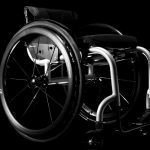[grwebform url=”https://app.getresponse.com/view_webform_v2.js?u=zZ4xV&webforms_id=18433203″ css=”on” center=”off” center_margin=”200″/]
Depression is a common problem for people living with a SCI, with as many as 40% of people experiencing it during rehabilitation, and 20% a year after their injury. Unlike other emotions, such as grief, that tend to reduce over time, depression is persistent. As depression effects everyone differently it is not always easy to recognise, but as it can interfere with recovery and have longer term health impacts, it is important that it is identified and treated.
Causes of depression
Whilst there are many causes of depression, anyone with a SCI faces different problems that can contribute to it. These include:
- Health problems – pain, sleep and fatigue problems
- Loss of independence and physical abilities
- Changes in self image
- Symptoms from associated conditions such as a brain injury
- Fear about the future
Treating depression after a SCI
Fortunately, there are a number of treatments from depression, including:
- Counselling – coupled with medication, this tends to be the first treatment used. As the name suggests, this involves talking with a psychologist or other trained professional. Focus is primarily on cognitive behavioural therapy (CBT). This addresses how feelings and behaviour can contribute to depression and helps to develop practical skills to manage both.
- Medication – there are a wide range of antidepressant medications available. Some can treat sleep, nerve pain and mood at the same time, making them ideal for those with a SCI.
- Exercise – is now becoming more widely used as it can help to reduce pain, release endorphins as well as helping to maintain mobility and increase quality of life.
Research evidence suggests that a combination of the above 3 treatments will help to alleviate the symptoms of depression for those with a SCI.
To find out more about depression after a SCI, check out the SCIRE Community Web site






Recent Comments